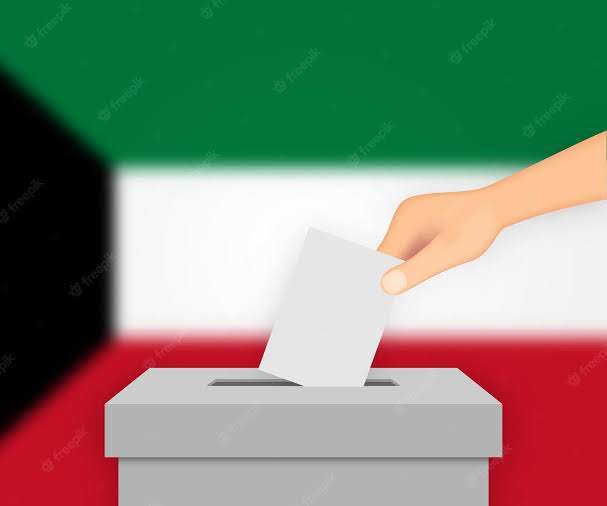Latest News
- Six Stores Shut Down In Jahra For Selling Fake Goods
- Peddlers Caught With Drug Pills And Crystal Meth
- PAFN Shuts Down Restaurants And Bakeries Over Violations
- MoI Officer And Lawyer Jailed On Fraud Charges For Bad Cheques
- Thousands Of Bangladeshis Gathered To Pray For Rain
- Kuwait University Symposium Addresses Student Counselors' Role I...
- Kuwait Affirms The Importance Of Group Work In Addressing Common...
- Urgent Call For Kuwaitization: Civil Service Commission Aims For...
- Kuwait Halts Work Permits For Egyptian Workers Amidst New Regula...
- Kuwait Weather Advisory: Strong Northwesterly Winds And Dust Ex...
- Kuwaiti MPs Express Concerns Over Halted Development Projects Am...
- Syrian Expat Teacher Detained For Allegedly Threatening Students...
The Kuwaiti Ruler Is Facing A Poll Test Over His Offer To End Political Gridlock

Kuwait's ruler offered a way out of years of political impasse in a brief speech in June. Elections on Thursday will go a long way to deciding whether the vision becomes a reality.
Sheikh Meshaal Al Ahmed Al Sabah, the crown prince who is only about four years his junior, delivered the emir's address. But there’s evidence it has injected dynamism into Kuwaiti politics gridlocked by disputes.
State institutions have been shaken up, officials have been removed, and elections for the National Assembly speaker and key committees won't be interfered with, a major problem after the last election in 2020. Now Kuwaitis are being asked to elect a 50-member legislature willing to do its bit. It’s a crucial time for the OPEC exporter which wields a $700 billion sovereign wealth fund.
A surprising source of praise has come to our attention. Some of the steps unveiled “were impressive,” said top opposition figure Ahmad Al Saadoun. The 87-year-old former speaker is vying for a seat in parliament after opposition leaders largely lifted a 12-year boycott called to protest rules they said favoured pro-government candidates.
During a recent rally, Al Saadoun said that the government opened "the road for citizens, and now it is the people's responsibility."
There’s no guarantee the progress won’t unravel, of course. Officials have in the past pulled the plug on reforms to overhaul governance when they appeared likely to curb the power enjoyed by unelected leaders. Parliament can debate and delay policymaking, and hold ministers to account, but the ultimate say on all matters of state rests with the emir.
And a ban on political parties means that while opposition candidates are expected to win a majority, there’s no guarantee they’ll unite around a common agenda.
In the June speech, the crown prince - who was given more powers as Emir Sheikh Nawaf Al Ahmed Al Sabah travelled abroad for medical treatment - also issued a veiled warning: if the election dragged the country deeper into impasse, Kuwaitis would “face measures with serious consequences,” he said, without elaborating.
Around 800,000 voters, just over half the citizen population, can choose from 305 candidates, just 22 of them women. Despite women winning the right to vote 17 years ago, there wasn’t a single female lawmaker in the last National Assembly.
It was dissolved two months ago as deadlock continued to stall policies seen as critical to the economy, including legislation to let the government return to global debt markets.
Campaigning has, though, been dominated by corruption, the state of Kuwait’s education and health sectors and housing, while a series of attacks on women sparked public anger.
Some officials fear there hasn’t been enough attention given to crucial decisions on diversifying an economy dominated by oil revenue and expanding sectors such as entertainment - steps being followed with greater zeal in regional powerhouse Saudi Arabia.
“Is it conceivable that candidate platforms don’t include crucial issues about economic security?” Kuwait Finance House Chairman Hamad Al Marzouq tweeted this week.
Trending News
-
 Kuwait Implements Home Biometrics Services Ahead O...
14 April 2024
Kuwait Implements Home Biometrics Services Ahead O...
14 April 2024 -
 Kuwait Airways Provides Update On Flight Schedule...
14 April 2024
Kuwait Airways Provides Update On Flight Schedule...
14 April 2024 -
 Kuwait Airways Introduces Convenient Home Luggage...
15 April 2024
Kuwait Airways Introduces Convenient Home Luggage...
15 April 2024 -
 Expat Residency Law Amended By Kuwait Ministerial...
20 April 2024
Expat Residency Law Amended By Kuwait Ministerial...
20 April 2024 -
 Gathering For Eid Al-Fitr Prayers: Kuwaiti Citizen...
10 April 2024
Gathering For Eid Al-Fitr Prayers: Kuwaiti Citizen...
10 April 2024 -
 Two Expats Are Arrested For Stealing From Salmiya...
17 April 2024
Two Expats Are Arrested For Stealing From Salmiya...
17 April 2024 -
 An Egyptian Expat Dies At Kuwait's Airport
11 April 2024
An Egyptian Expat Dies At Kuwait's Airport
11 April 2024 -
 Bay Zero Water Park Kuwait: Summer Season Opens Ei...
11 April 2024
Bay Zero Water Park Kuwait: Summer Season Opens Ei...
11 April 2024 -
 Kuwait Airways Resumes Flights To Beirut And Oman...
15 April 2024
Kuwait Airways Resumes Flights To Beirut And Oman...
15 April 2024 -
 Temperature Increases Cause Electricity Load Index...
21 April 2024
Temperature Increases Cause Electricity Load Index...
21 April 2024












Comments Post Comment